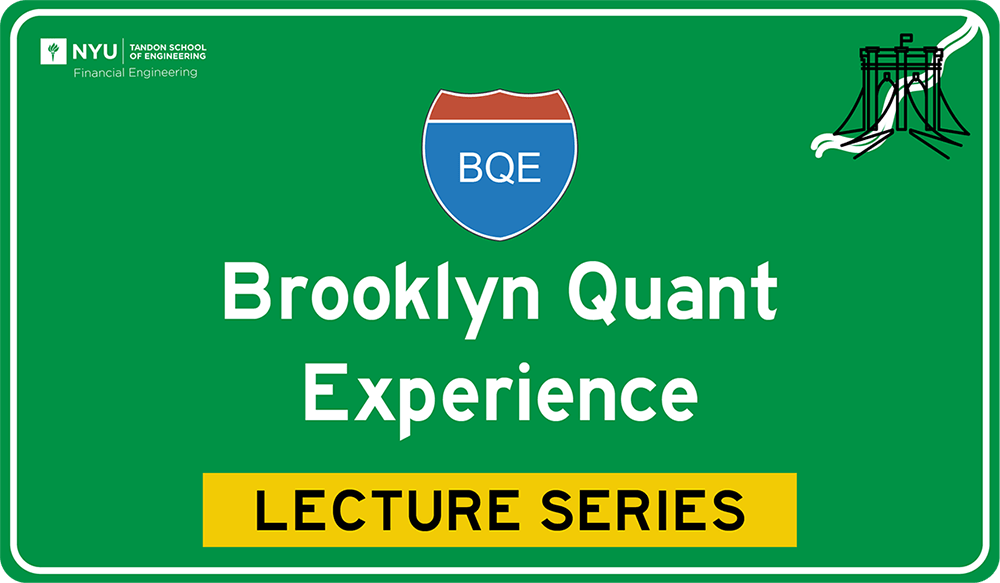 Dear All,
Dear All,
You are cordially invited to the Brooklyn Quant Experience Lecture Series (BQE) on Thursday, February 20th at 6PM in the Event MakerSpace – 6 MetroTech Center, 1st Floor.
Dr. Claudio Tebaldi will present a talk on the following topic:
Title:
Arbitrage Pricing Implications of Cascade Risk
Abstract
Traditional approach to valuation by (no) arbitrage has focused on the impact on prices of systematic risk factors. In fact firm-specific risks are assumed to be completely diversifiable. In our research we reconsider intertemporal asset pricing in an economy where distress shocks can propagate through a network of inter-firm connections. It can be shown under general conditions that two classes of equilibria emerge. In the first, firm-specific shocks are diversifiable and do not affect investor expectations. In the second, they generate non-diversifiable cascades that amplify arbitrage risk giving rise to a risk premium component not accountable by any systematic factor. We analyze the impact of cascades on stock and option prices and expected returns. We exemplify our findings focusing on the pricing of claims written on assets of financial intermediaries connected by a network of debt-credit claims.
Bio:
Claudio Tebaldi is a tenured faculty member of the Department of Finance, L. Bocconi University Milano. Associate professor in the field of Quantitative Methods for Economics, Finance and Insurance since 2011, he holds the National Qualification for Full Professorship since 2015. He is a fellow of IGIER and Baffi-CAREFIN research centers and has been Visiting Scholar at UCLA Anderson School of Business. His research interests range in the areas of Derivative, Asset pricing and Portfolio management. His papers are published in leading peer-reviewed journals like the Review of Financial Studies, Mathematical Finance, Journal of Financial and Quantitative Analysis and Journal of Econometrics and two of them have been awarded: one in September 2019 by the Canadian Derivatives Institute as Best Paper in Derivatives of the Northern Finance Association Meeting, one in January 2007 as Best Paper of the Swiss Econometrics and Finance Society Meeting. He is currently serving as Managing Editor of Quantitative Finance.
We look forward to having you join us for the talk and refreshments.
Click on link below for the full spring BQE Lecture Series:
https://engineering.nyu.edu/academics/departments/finance-and-risk-engineering/upcoming-events
